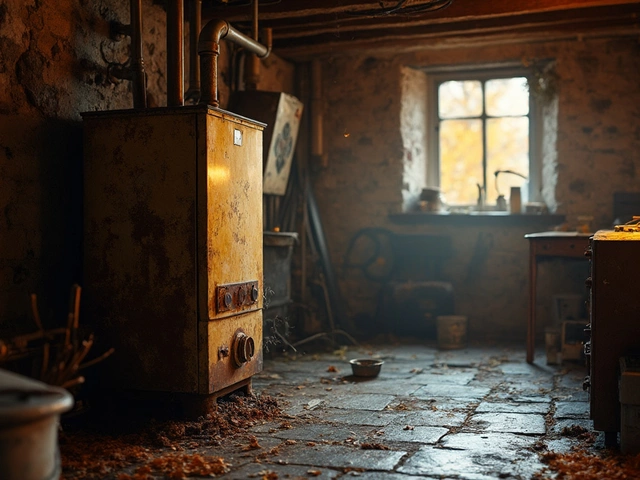If your freezer is making odd noises, leaking water, or just isn’t keeping food frozen, it might be time for a replacement. Trying to fix an old unit can end up costing more than a brand‑new one, especially when parts are hard to find. Below you’ll find practical steps to decide if replacement is right, choose a model that fits your kitchen, and get it installed without a headache.
Look for these red flags before you spend money on another repair:
When you see two or more of these signs, start planning a replacement rather than a repair.
Picking a new freezer isn’t just about size. Think about how you use it day to day.
Once you’ve narrowed down the type, read a few user reviews. Real owners will tell you if the door seal holds up or if the temperature controls are reliable.
When you have a model in mind, compare prices at local retailers and online stores. Don’t forget to add delivery and installation fees to the total cost.
Putting a new freezer in place is usually straightforward, but a few steps can prevent future headaches:
If you’re not comfortable moving a heavy freezer or need new plumbing for a frost‑free model, call a local specialist. Bognor Regis Appliance Repair Experts can handle delivery, removal of the old unit, and proper set‑up, ensuring you stay within warranty requirements.
Replacing a freezer is a chance to boost energy efficiency, gain extra storage, and avoid costly breakdowns. Use the signs above to decide when it’s time, pick a model that matches your lifestyle, and follow the simple installation steps. With a little planning, your new freezer will keep food fresh for years to come.

Deciding between repairing and replacing a freezer can be tricky. This article guides you through evaluating repair costs, expected lifespan, and energy efficiency before making a decision. It provides practical advice to help you make an economical choice, whether to fix or replace your freezer. Learn important factors to consider, like repair frequency and environmental impact, to ensure you spend wisely.

Cracked or damaged glass hobs make you panic, but not every problem spells doom for your stove. This article breaks down what issues can actually be fixed and when it's smarter to replace the glass. You’ll get real-life tips, possible repair options, and clear warnings for common mistakes. Safety comes first, but you’ll also find out when you can handle things yourself—or absolutely need a pro. Practical info, simple steps—you’ll get the full story on glass hob repair.

A malfunctioning boiler can be a real nuisance, especially during the cold months. Understanding whether a broken boiler constitutes an emergency is crucial. This article provides insights into when to prioritize boiler repairs, potential risks associated with delayed attention, and essential DIY tips to consider before professional help arrives. Dive into valuable advice on maintaining your heating system efficiently.

Not sure how to keep your extractor fan running smoothly? This guide breaks down the simple steps to service an extractor fan, covering cleaning, inspecting parts, and spotting potential issues. Regular maintenance can extend the life of your fan and ensure your kitchen stays fresh and ventilated. Discover some handy tips and tricks to make this an easy task. No need to call in a professional; you can handle this yourself with a little guidance.

Curious about how much a new boiler might set you back? This article breaks down the costs involved, from purchasing the unit to installation fees. Understand the factors that influence pricing and learn practical tips to get the most value from your investment. Discover essential maintenance advice and the importance of proper sizing and efficiency ratings. Equip yourself with knowledge before making a decision about your home's heating system.

Replacing an old boiler might seem like a hassle, but when it's reaching the 15-year mark, the decision becomes crucial for efficiency and safety. This article explores whether it's time to upgrade, balancing costs, savings, and the impact on your home. From understanding energy efficiency to recognizing warning signs, we dive into everything you need to consider. With insights and practical tips, make an informed choice about your old boiler.